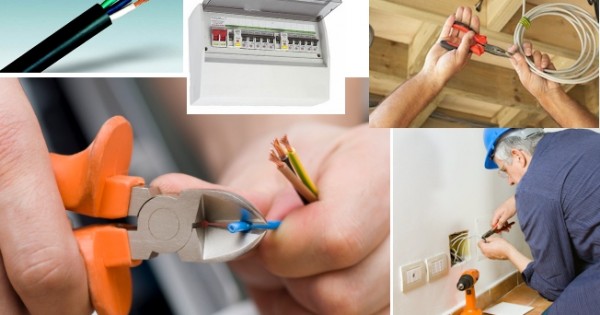As a home owner, you are not expected to have any technical vocabulary as that of any electrical contractor. But there is no harm in knowing some popular terms often used by electricians. It will in fact add to your knowledge and word bank. In addition, it will also help you interact better with the electricians if you happen to hire one for your future projects.
Let’s have an insight what those important electrical terms could be:
- Kilowatt – It is a unit of measurement of electricity that equals to 1,000 watts or nearly 1.34 horsepower.
- Current – It is the electrical charge that comes to your home from the power supply company. All current is AC (alternating current) in US. DC (direct current) is power you get from a car battery etc. that offers immediate power.
- Kilowatt Hour – This is also a type of measure your power supply company uses to calculate your monthly electricity bill consumption. It is taken from your electric meter.
- Electrical Panel – The main electrical panel that connects the main power source that is taken from the exterior electrical lines to your home’s individual cables is called electrical panel. Every circuit is equipped with either a fuse or a circuit breaker to cut the power in the event of a fluctuation. The electrical panel is also having a primary shut-off lever to cut power to the whole house in case of any emergency.
- Voltage – It is same as current, but the difference is that the voltage is the source of the power, and not the power. Car batteries and generators have voltage, but the electricity you use at home is current.
- GFCI Outlet – The Ground Fault Circuit Interrupter outlet (GFCI) is necessary for most building codes closer to water sources, as in bathrooms and kitchens. These outlets are also having a built-in circuit breaker to ward off any electric shock.
- Electrical Receptacle – It is mostly termed as an outlet. The electrical receptacle is installed where you plug in computers, kitchen appliances, lamps, and other electric-powered devices.
- Consumer unit – It is also known as electrical control unit or fuse box, which consists of fuses and breakers in one row that monitors the distribution of
electrical energy.
- Distribution Board – This is a type of board holding multiple rows of breakers and fuses and generally serves multiple locations in a big property. It can be split into phases – two or three phases.
- Circuit – It comprises of lighting points, sockets, and switches that are all supplied from the single source.
- Circuit Breaker/RCD – This is an automatically functional electrical switch meant to protect an electrical circuit from causing any kind of damage due to over load or a short circuit. Under these circumstances it detects the fault and interrupts the electricity flow.
- Class 1 Equipment – This is a protection that works against electric shock. It is also the means for the connection of conductive-parts that are exposed to a protective conductor in the fixed wiring of any installation. It has exposed metallic parts.
- Electrical Safety Regulations – As per the law, all business owners, their managers, employees and each one involved must comply with “The Electricity at Work Regulations”.
- Extension leads – It is also called extension cable, extension cord or power extender ,which is an electrical power cable having a plug on one end and sockets on the other. It is used in limited quantity as it may result in overloading of the circuit.
Synopsis
These are some most popular electricity jargons and terminology that are often used by electrical contractors. Adding these into your vocabulary will not only add to your data bank but will also help you communicate and understand their language better.












